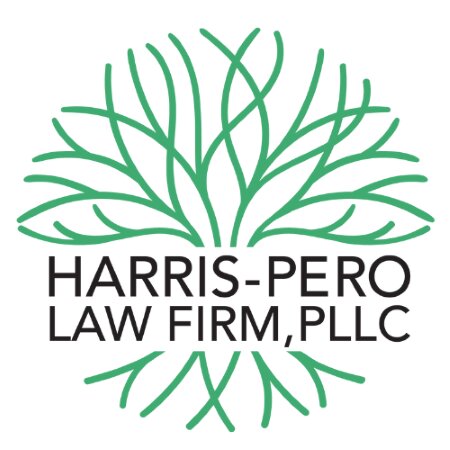Best Communications & Media Law Lawyers in United States
Share your needs with us, get contacted by law firms.
Free. Takes 2 min.
Or refine your search by selecting a city:
List of the best lawyers in United States
About Communications & Media Law in the United States
Communications & Media Law encompasses the regulations and legal standards governing the dissemination of information and content through various media platforms. In the United States, this area of law covers a wide range of issues such as broadcasting, telecommunications, antitrust matters, and freedom of speech under the First Amendment. The Federal Communications Commission (FCC) plays a central role in overseeing and implementing the rules for the communications sector, which includes television, radio, internet, and satellite communications.
Why You May Need a Lawyer
Individuals and businesses may require legal assistance in Communications & Media Law for several reasons. Common situations include:
- Ensuring compliance with FCC regulations for broadcasting and telecommunications.
- Addressing violations of privacy or defamation in media content.
- Navigating legal challenges related to mergers and acquisitions in media companies.
- Protecting intellectual property rights when distributing digital or traditional media.
- Litigation concerning advertising laws and truth-in-advertising requirements.
- Handling disputes over internet content and regulation.
Local Laws Overview
Communications & Media Law in the U.S. is influenced by both federal and state laws. Key components include:
- Federal Communications Act: This act establishes the FCC's authority to regulate interstate and international communications.
- Federal Trade Commission (FTC) Regulations: In charge of overseeing advertising practices to prevent deceptive or unfair practices.
- State Laws: States may have additional regulations affecting media operations within their jurisdiction, especially concerning defamation, privacy, and advertising.
- Cable Television Consumer Protection and Competition Act: Governs the cable TV industry ensuring fair competition and customer service standards.
- Children’s Online Privacy Protection Act (COPPA): Protects children's privacy online by regulating the collection of personal information from minors.
Frequently Asked Questions
What is the role of the FCC?
The FCC regulates interstate and international communications through radio, television, wire, satellite, and cable, ensuring compliance with federal laws.
When do I need to comply with broadcast regulations?
If you own or operate a television or radio station, you must comply with FCC rules related to licensing, content, and transmission operations.
What legal considerations exist for launching a new media platform?
You need to consider regulatory compliance with the FCC, intellectual property rights, potential liability for defamation, and advertising laws.
How can a lawyer assist with mergers in the media industry?
A lawyer can provide guidance on antitrust regulations, draft necessary agreements, and ensure all legal compliance issues are addressed.
What is defamation in media law?
Defamation involves making false statements that harm someone's reputation, either through libel (written) or slander (spoken).
What protections are available for internet content creators?
Content creators are protected under copyright law, ensuring their work cannot be used without permission. Additionally, Section 230 of the Communications Decency Act provides some protections to platforms hosting user-generated content.
How does privacy law affect communications and media?
Media and communication companies must adhere to data privacy standards, particularly when collecting and using consumer information, under laws such as COPPA and GDPR (if operating internationally).
What are the legal challenges with advertising online?
Ensuring compliance with truthful advertising laws and avoiding practices deemed unfair or deceptive by the FTC.
Is net neutrality relevant to media law?
Yes, net neutrality impacts how internet service providers must treat data equally without giving preferential treatment to certain websites or services.
What steps should be taken if facing a communications-related lawsuit?
Contact a lawyer with expertise in Communications & Media Law to assess the situation and develop a strategic response plan.
Additional Resources
Consider consulting the following for further information:
- Federal Communications Commission (FCC): The primary regulatory authority for communications in the U.S.
- Federal Trade Commission (FTC): Provides resources and guidelines on advertising and consumer protection.
- American Bar Association (ABA): Offers resources and directories to find a specialized Communications & Media Law lawyer.
- Electronic Frontier Foundation (EFF): Focuses on civil liberties in the digital world.
Next Steps
If you require legal assistance, consider the following steps:
- Identify the specific area of Communications & Media Law relevant to your situation.
- Research and contact lawyers or law firms specializing in that area.
- Prepare all relevant documents and information related to your matter for consultation.
- Discuss potential strategies and solutions with your lawyer.
- Regularly review any changes in laws and regulations applicable to your case or business.
Lawzana helps you find the best lawyers and law firms in United States through a curated and pre-screened list of qualified legal professionals. Our platform offers rankings and detailed profiles of attorneys and law firms, allowing you to compare based on practice areas, including Communications & Media Law, experience, and client feedback.
Each profile includes a description of the firm's areas of practice, client reviews, team members and partners, year of establishment, spoken languages, office locations, contact information, social media presence, and any published articles or resources. Most firms on our platform speak English and are experienced in both local and international legal matters.
Get a quote from top-rated law firms in United States — quickly, securely, and without unnecessary hassle.
Disclaimer:
The information provided on this page is for general informational purposes only and does not constitute legal advice. While we strive to ensure the accuracy and relevance of the content, legal information may change over time, and interpretations of the law can vary. You should always consult with a qualified legal professional for advice specific to your situation.
We disclaim all liability for actions taken or not taken based on the content of this page. If you believe any information is incorrect or outdated, please contact us, and we will review and update it where appropriate.
Browse communications & media law law firms by state in United States
Refine your search by selecting a state.
















